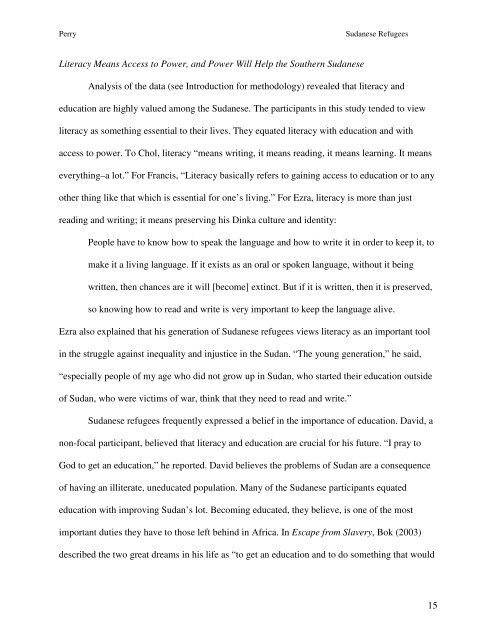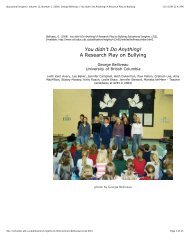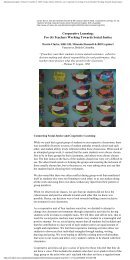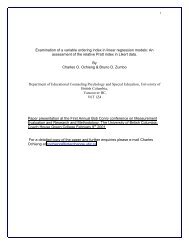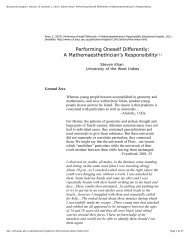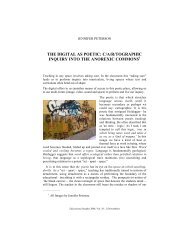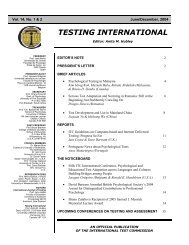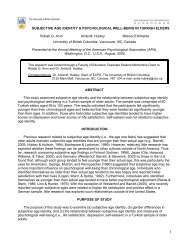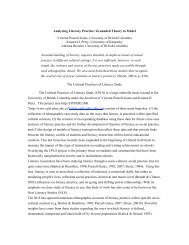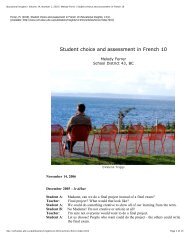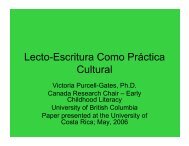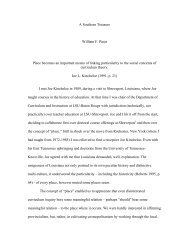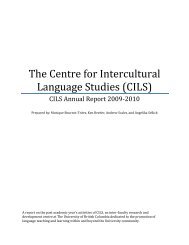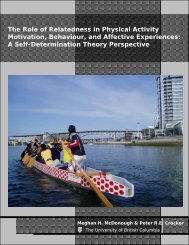Sharing Stories, Linking Lives: Literacy Practices Among ... - CPLS
Sharing Stories, Linking Lives: Literacy Practices Among ... - CPLS
Sharing Stories, Linking Lives: Literacy Practices Among ... - CPLS
You also want an ePaper? Increase the reach of your titles
YUMPU automatically turns print PDFs into web optimized ePapers that Google loves.
Perry Sudanese Refugees<br />
<strong>Literacy</strong> Means Access to Power, and Power Will Help the Southern Sudanese<br />
Analysis of the data (see Introduction for methodology) revealed that literacy and<br />
education are highly valued among the Sudanese. The participants in this study tended to view<br />
literacy as something essential to their lives. They equated literacy with education and with<br />
access to power. To Chol, literacy “means writing, it means reading, it means learning. It means<br />
everything–a lot.” For Francis, “<strong>Literacy</strong> basically refers to gaining access to education or to any<br />
other thing like that which is essential for one’s living.” For Ezra, literacy is more than just<br />
reading and writing; it means preserving his Dinka culture and identity:<br />
People have to know how to speak the language and how to write it in order to keep it, to<br />
make it a living language. If it exists as an oral or spoken language, without it being<br />
written, then chances are it will [become] extinct. But if it is written, then it is preserved,<br />
so knowing how to read and write is very important to keep the language alive.<br />
Ezra also explained that his generation of Sudanese refugees views literacy as an important tool<br />
in the struggle against inequality and injustice in the Sudan. “The young generation,” he said,<br />
“especially people of my age who did not grow up in Sudan, who started their education outside<br />
of Sudan, who were victims of war, think that they need to read and write.”<br />
Sudanese refugees frequently expressed a belief in the importance of education. David, a<br />
non-focal participant, believed that literacy and education are crucial for his future. “I pray to<br />
God to get an education,” he reported. David believes the problems of Sudan are a consequence<br />
of having an illiterate, uneducated population. Many of the Sudanese participants equated<br />
education with improving Sudan’s lot. Becoming educated, they believe, is one of the most<br />
important duties they have to those left behind in Africa. In Escape from Slavery, Bok (2003)<br />
described the two great dreams in his life as “to get an education and to do something that would<br />
15


